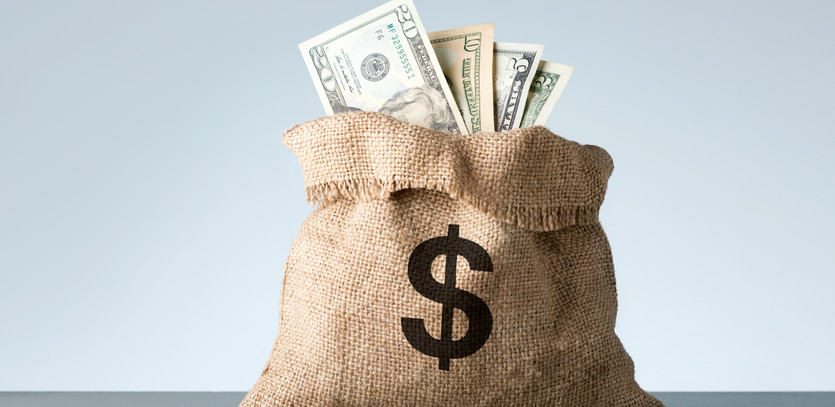As an early-stage investor, stepping into the intricate world of portfolios, stocks, bonds, and cash reserves, can be akin to navigating through a labyrinth. Among the myriad decisions to make, one particularly challenging conundrum often faced by newcomers is - just how much of their portfolio should they maintain in cash? This puzzle becomes even more intricate given today's scenario of modest interest rates.
Imagine setting sail on a vast ocean, armed with your investment compass, and a fair wind in your sails. Your destination? The land of financial growth and stability. Yet, you find yourself asking, "What should be the ideal weight of my cargo? How much of it should be the precious treasure - cash?" This voyage of ours is set to uncover the secrets of cash reserves in an investment portfolio, guiding you safely to your financial destination.
A Nostalgic Journey to the Golden Era of Cash Investments
As we embark on this journey, let's turn back the clock, reminiscing about a time when investing seemed somewhat simpler. Picture yourself opening a brokerage account, choosing a money market account or a similar alternative, and then reclining comfortably. As you patiently scouted the horizon for an attractive investment opportunity, your money was quietly accumulating generous returns of 4%, 5%, or even 6%. This era of high returns on cash feels like a dream today, thereby amplifying the intricacies of how much cash to keep on hand in the present-day world.
Determining Your Cash Reserve: The Vital Lifesaver in Financial Seas
Before we delve deeper into the dynamics of cash in your investment portfolio, it's paramount to understand the cornerstone of any sound financial strategy - an emergency fund. This reserve serves as a lifeboat, the minimum level of cash you should have readily accessible, capable of covering your typical expenses for at least six months.
But how do we figure out the right amount for this lifeboat? For starters, take into consideration your day-to-day living costs. This could include expenses for housing, groceries, utilities, healthcare, transportation, and any outstanding debts. Don't forget to factor in the cost of unexpected events, such as home repairs or medical emergencies. Once you've made these calculations, aim to set aside enough cash to cover these expenses for six months.
Furthermore, your lifestyle, your dependents, and your financial obligations could influence the size of your emergency fund. If you are single, have a stable job, and fewer financial obligations, you might need a smaller emergency fund than someone with a family, unstable income, or many financial responsibilities.
This financial cushion equips you to withstand unexpected financial tempests without needing to hastily sell off assets at unfavorable times, potentially saving you from the hazards of excess taxes and underwhelming returns. So, while the cash reserve might seem like a dormant player in the game, it is the unsung hero protecting your financial health during market downturns.
Cash: The All-Rounder of Your Investment Game
Let's shift our gaze to the wide canvas of investment. Upon this stage, cash plays multiple roles, each one as pivotal as the next, quietly shaping the course of your financial journey. This humble yet powerful entity functions as both an offensive and defensive tool, steering your investment ship through the ebb and flow of market trends.
Cash: The Unsung Defensive Warrior
From a defensive standpoint, large cash reserves in a portfolio act as a buffer against market volatility. These reserves serve as a financial moat that helps protect your investment fortress when asset markets decline, reducing the need for hasty, potentially damaging sell-offs. The greater the reserves, the stronger and wider the moat, providing ample breathing space during tough market conditions.
Consider this scenario: You're amidst a turbulent market phase, where your investments are experiencing a decline. In the absence of adequate cash reserves, you might be forced to sell assets at less-than-optimal prices. However, if you've maintained a robust cash reserve, you can comfortably weather this storm, holding onto your assets and waiting for their value to bounce back. The defensive role of cash, therefore, underscores the adage that patience is indeed a virtue in investing.
Cash: The Agile Offensive Strategist
On the flip side, cash can also take on an aggressive role in your investment portfolio. When asset prices plummet, a robust cash reserve can transform into a potent tool to seize bargain investment opportunities. The defensive moat now doubles as a drawbridge, allowing you to venture out and conquer undervalued assets.
Consider the world-renowned investor, Warren Buffett. In August 2019, his firm, Berkshire Hathaway, held a staggering $122 billion in cash. This formidable cash reserve allowed Buffett to remain patient and pick his battles, purchasing assets when their prices hit rock-bottom levels.
Meanwhile, Charlie Munger, Buffett's long-time business partner, also accrued substantial cash reserves over many years. He'd patiently wait, ready to pounce when low-risk, high-reward investments came into view. The offensive role of cash reserves, as demonstrated by these legendary investors, highlights the power of cash as an instrument to exploit market downturns and maximize potential returns.
The Silent Guardian: Cash as Liquidity Reserves
Stepping out of the battlefield and into the quieter realms of portfolio management, cash plays yet another critical role – a liquidity reserve. During times of market seizures or extended exchange closures, liquidating assets might be an uphill battle. This is where the liquidity reserves serve as a protective shield, enabling you to cover ongoing expenses without the need to convert your assets into cash at unfavorable rates.
In essence, cash in this context serves as a safety net, providing much-needed financial oxygen during crisis periods. This role of cash once again highlights the profound wisdom in Buffett's quote: "Cash is like oxygen, taken for granted when present but the only thing that matters when absent."
Thus, cash in your portfolio is not merely an idle bystander. It dons multiple hats – a defensive guard, an offensive strategist, and a silent guardian, making it an indispensable component of a well-rounded investment strategy.
Wrapping Up the Cash Conundrum: Answers to Your Questions
In sum, the journey to financial success is seldom linear, and the winding path often presents surprises along the way. Cash, as a multi-dimensional player in your portfolio, arms you with the flexibility and security needed to adapt and thrive in the face of these financial surprises. From defending against market downturns and seizing investment opportunities to ensuring liquidity during crises, cash indeed plays a pivotal role in your financial playbook.
Now that we've unraveled the intricacies of cash management in your portfolio let's delve into some commonly asked questions to further solidify your understanding.
Q: What exactly are cash investments? A: Cash investments usually refer to short-term investments that are insured by the Federal Deposit Insurance Corporation (FDIC) and offer some interest returns, even if minimal. Think of instruments like certificates of deposit (CD). Moreover, in broader terms, 'cash investments' can also denote the actual cash amount an individual has invested in a venture, as opposed to financing obtained via a small business loan or other funding avenues.
Q: Why would high-net-worth individuals allocate money to cash? A: High-net-worth individuals, already in possession of significant wealth, often maintain substantial cash reserves to act patiently and prudently in their investment decisions. They can afford to wait for the market to present particularly lucrative investment opportunities during downturns. In the meantime, their proportionally smaller equity investments might still be larger than an average person's entire portfolio.
Q: What does it mean to be 'overweight' in cash in your asset allocation? A: 'Overweight' implies a higher-than-usual proportion of a particular asset, cash in this case, within your investment portfolio. It can be a strategic move based on market conditions and personal financial goals. Sometimes, financial advisors may recommend an overweight cash position in your portfolio, while at other times, it could be beneficial to underweight your cash investments.
To conclude, understanding and embracing the multi-faceted roles of cash in your portfolio not only provides you with a sturdy financial backbone but also opens up new investment avenues, turning market adversities into opportunities. Cash indeed is a silent partner that significantly contributes to the success of your investment journey.





